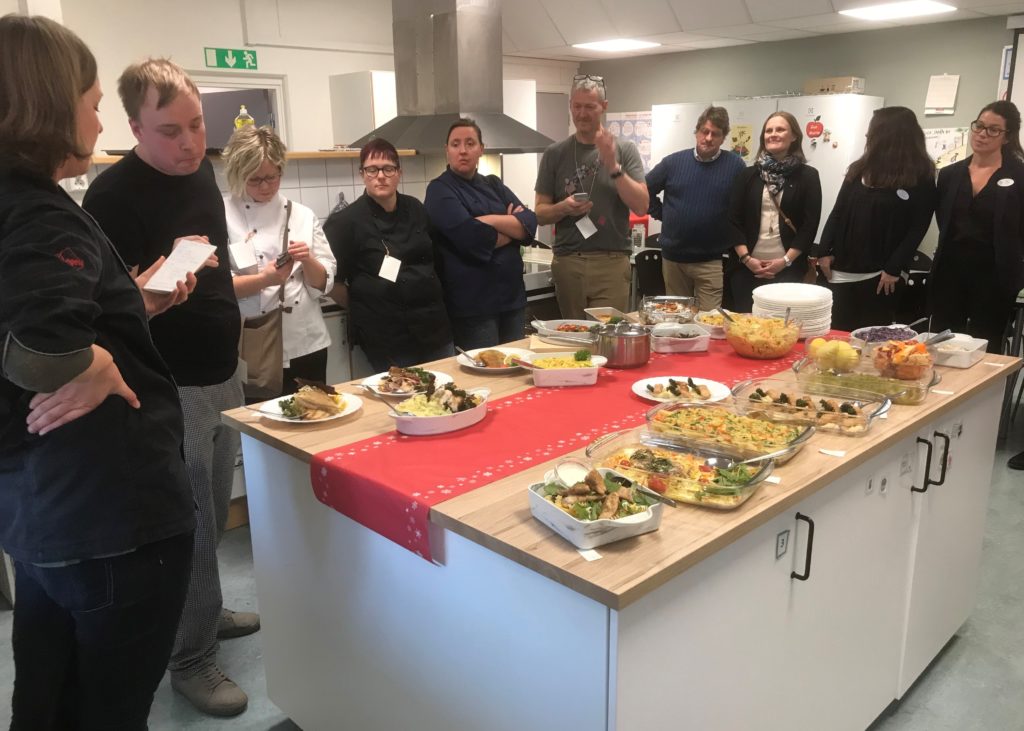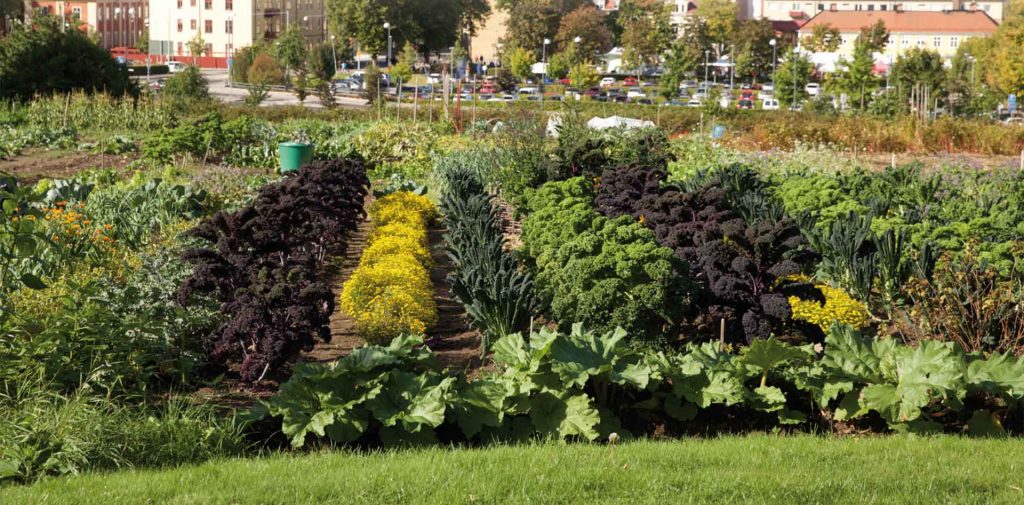Refarm Linné strives to increase sustainable food production throughout the country, through local, sustainable, and circular production, both in the city and the countryside
Refarm Linné looks at food from a business perspective and a social perspective, where food and the meal are used as a meeting place in a social context. Here you can read about some of the projects we run or are involved in to achieve our goal of more sustainable food production and consumption.
Eco in Linné’s footsteps
Sweden’s Parliament decided in 2017 that the amount of organic food in public kitchens should be 60% by 2030. With funding from the Swedish Agency for Agriculture, Refarm Linné runs a practical project where we travel around the country to educate and spread knowledge about organic food to all levels within the public sector, e.g., nutrition managers, cooks, meal assistants, meal managers, meal developers in schools and care for the elderly.
Eco in Linné’s footsteps – Theory and practical cooking
Learn more about organic foods. In the course Organic food in theory and practice, we focus on getting more organic food into the public kitchen to reach the national goal of 60% by 2030.

Syllabus (in short)
Half a day with theory about organic production and labeling and more, as well as about organic added value in relation to other added value such as locally produced or low carbon footprint, and about how to improve the economy by looking at the whole within sustainability, including more cooking from scratch, more food in season, reduced meat quantity and reduced wastage.
How to communicate added value around sustainability to guests and visitors. We provide examples of educational opportunities by working in theory and practice with sustainable meals. We discuss how profiling around sustainable food production and healthy food can raise the kitchens’ status into other operations.
Cooking from scratch with a menu that contains more organic ingredients or a completely vegetarian menu. We also focus on more ingredients in season, more climate-smart with, among other things, plant-based protein sources and more national ingredients.

Taking care of our planet according to Carl Linnaeus (Carl von Linné)
In the project, development efforts in the spirit of Linnaeus are carried out within Kronoberg County. Refarm Linné wants to raise the importance of biological diversity and food waste and involves children in the future’s cultivation and sustainable food production.
We have developed and updated the garden cultivation, the insect hotel and the butterfly restaurant outside the office in Växjö. It is bursting with life, not least pollinators, be inspired and perhaps build your own little insect oasis in your garden or workplace.
Our support members’ contributions co-finance the construction of a vegetable farm, an insect hotel and a butterfly restaurant to spread the message and knowledge about the importance of preserving biodiversity. In previous years we had some pallet collars with some perennial and annual vegetables and berry plants. The idea to develop the site in favor of insects was born when we heard about the UN report on threatened losses in global biodiversity – and about its consequences for the world’s food production. The farm can be visited outside the offices of Refarm Linné and Studieförbundet Vuxenskolan in Växjö.
Biodiversity
20% of the Swedish butterflies that have been assessed by the Species Data Bank are red listed. 27 percent of the assessed bee species, which include bees and bumblebees, in Sweden are red-listed. Almost 40% of wild bees and 30% of butterflies in Europe have declining populations. Everything points to the fact that many of the species on which we humans and nature depend are not doing well.
Just a few months after we built our diversity corner, we found in about half an hour, among other things, Stone bumble bee, Earth bumble bee, Silk bee, Lemon bee, Herb garden bee, Blood bee, Lesser goldwing, Honey bee, Hairy Stink bug, Ladybug, Strip louse!
An insect hotel and butterfly restaurant is a good, educational and fun way to draw the attention of both young and old to all the fantastic animals in the environment that we may not always notice. A simple way to make, for example, nature knowledge more practical and exciting, while the children learn a lot about how nature works.
Refarm Linné is a non-profit association based in Kronoberg County in Sweden
Refarm Linné works to spread knowledge about sustainable fish farming on land in combination with vegetable farming. Another important part of the business is spreading knowledge about how to increase the proportion of sustainable food production, not least in public kitchens. Teaching children about primary cultivation and biological diversity is also an important part of the activity, www.refarmlinne.se (Swedish).

This work is licensed under Creative Commons Attribution-NonCommercial-NoDerivatives 4.0 International.


